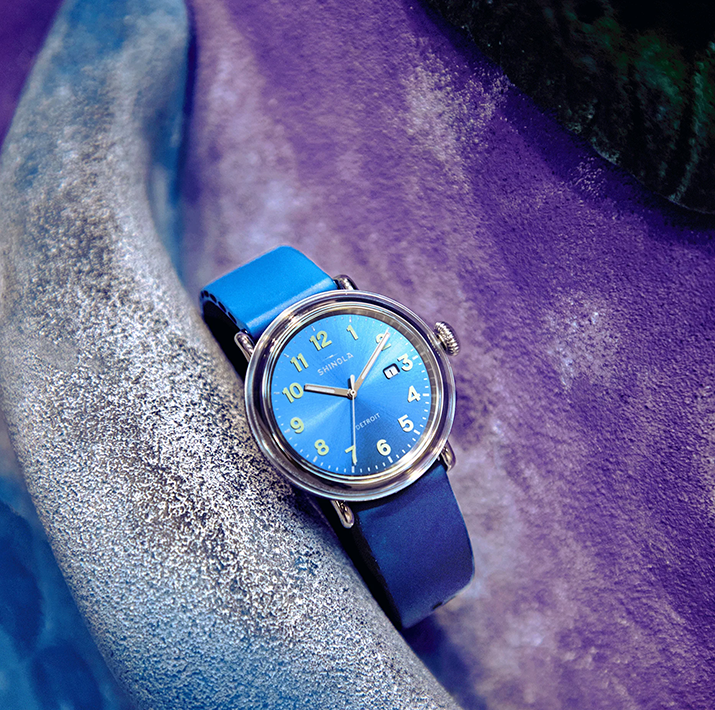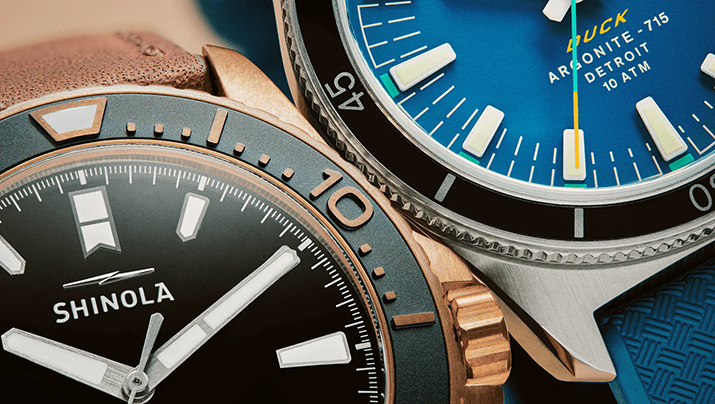Shinola: American Assembly in a Globalized Market
In the landscape of modern manufacturing—where outsourcing is the norm and “Made in China” dominates product labels—one brand has made a calculated bet on domestic assembly: Shinola.
Founded in 2011 and based in Detroit, Michigan, Shinola has built its reputation on assembling watches, leather goods, and other lifestyle products in the United States. Its stated mission is as much about job creation and urban revitalization as it is about selling luxury goods. But in an age of global supply chains and skeptical consumers, how American is Shinola?
Detroit Roots, Symbolic and Strategic
When Shinola’s founders chose Detroit as their base of operations, the decision was both symbolic and practical. Detroit, once the heart of American manufacturing, had been hollowed out by decades of industrial decline. Setting up shop there offered both a compelling brand story and access to a workforce ready for retraining.
The company converted part of Detroit’s historic Argonaut Building into a watch factory, where workers were trained in fine assembly skills—some coming from backgrounds far outside manufacturing. The move was designed to spark economic opportunity in a city that had been synonymous with industrial collapse.
Shinola’s presence in Detroit has been credited with bringing hundreds of jobs to the area, and the company has made a point of highlighting the human side of its workforce in its marketing materials.

“Built in Detroit” vs. “Made in the USA”
Shinola does not manufacture all of its components domestically. In fact, many parts used in its watches and other goods come from overseas. What sets the brand apart is that it assembles its products in the U.S., particularly in Detroit.
For example, the intricate work of putting together hundreds of components to make a mechanical or quartz watch happens in Detroit. Leather goods are cut and sewn in U.S. facilities, with hides sourced both domestically and internationally. Bicycles are assembled in the States from globally sourced parts.
This has led to some controversy. In 2016, the Federal Trade Commission (FTC) raised concerns about Shinola’s use of the phrase “Where American is Made,” ultimately requiring the brand to clarify that while its products are assembled in the U.S., they include imported parts. The company complied, adjusting its messaging to focus more on “Built in Detroit” or “Assembled in the USA.”
A Hybrid Model: Global Supply, Local Assembly
Shinola represents a hybrid model of modern manufacturing: sourcing components globally while performing final assembly in the U.S. This approach allows the brand to maintain a level of craftsmanship and quality control while still benefiting from cost-effective sourcing.
For some consumers, this nuance doesn’t diminish the value of Shinola’s work—it enhances it. In an era when many U.S. brands are little more than marketing shells for imported products, Shinola employs American workers in American cities and trains them in skills that might otherwise vanish from the domestic economy.
Critics argue that the brand benefits from the cachet of “American-made” while relying heavily on imported parts. Supporters counter that in today’s interconnected global economy, full domestic sourcing is often unrealistic—and that what matters is where the value is added and where the jobs are created.

Expanding Beyond Watches
Watches remain Shinola’s flagship product, but the company has expanded into leather goods, jewelry, audio equipment, and even limited-edition bicycles. Its Detroit leather studio produces wallets, bags, belts, and accessories, many of which are entirely cut, stitched, and finished in the U.S.
Each of these product lines carries the same message: American workers, American assembly, and a focus on quality over quantity.
Consumer Response
Shinola’s products are not inexpensive. A typical watch retails between $500 and $1,500; leather bags and accessories often fall in the same premium category. Yet the brand has cultivated a loyal following among consumers who value American labor, design-driven aesthetics, and the story behind the product.
For some buyers, the fact that Shinola is transparent about its sourcing and committed to U.S. assembly—even if not fully “Made in USA”—is a meaningful differentiator in a crowded luxury goods market.
The Bottom Line
Shinola is not a return to the 20th-century model of vertically integrated American manufacturing. But it is a deliberate, modern attempt to reclaim at least part of that legacy. By assembling its products in Detroit and other U.S. facilities, the company invests in domestic labor and helps preserve artisanal skills that have been eroded by globalization.
Whether you view Shinola as a pioneer of American manufacturing revival or a savvy marketer capitalizing on nostalgia, its model offers a rare example of domestic assembly on a meaningful scale. In a global economy, that alone makes it a brand worth watching.
